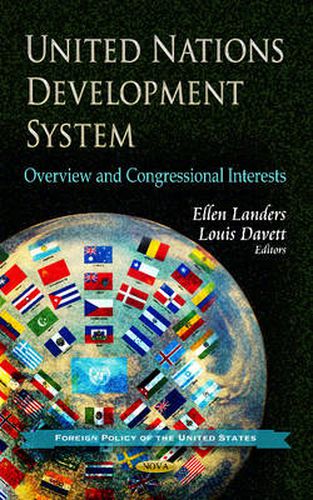Readings Newsletter
Become a Readings Member to make your shopping experience even easier.
Sign in or sign up for free!
You’re not far away from qualifying for FREE standard shipping within Australia
You’ve qualified for FREE standard shipping within Australia
The cart is loading…






Members of Congress continue to demonstrate an ongoing interest in the efficiency and effectiveness of United Nations (U.N.) development activities, both in the context of U.N. reform and broader U.S. development and foreign assistance efforts. Thirty-two U.N. agencies, funds, programs, and offices play a role in development. These entities, collectively referred to as the U.N. development system (UNDS), are independent intergovernmental organisations with distinct mandates, rules, membership, and financial resources. They work to help countries achieve social and economic progress through a range of development activities, including program implementation, technical assistance, providing forums for intergovernmental co-operation, setting and facilitating international standards and norms, advocacy and awareness raising, and research and data collection. This book discusses the origins and evolving role of the UNDS and its perceived strengths and weaknesses, with a focus on the current UNDS structure, funding levels and trends.
$9.00 standard shipping within Australia
FREE standard shipping within Australia for orders over $100.00
Express & International shipping calculated at checkout
Members of Congress continue to demonstrate an ongoing interest in the efficiency and effectiveness of United Nations (U.N.) development activities, both in the context of U.N. reform and broader U.S. development and foreign assistance efforts. Thirty-two U.N. agencies, funds, programs, and offices play a role in development. These entities, collectively referred to as the U.N. development system (UNDS), are independent intergovernmental organisations with distinct mandates, rules, membership, and financial resources. They work to help countries achieve social and economic progress through a range of development activities, including program implementation, technical assistance, providing forums for intergovernmental co-operation, setting and facilitating international standards and norms, advocacy and awareness raising, and research and data collection. This book discusses the origins and evolving role of the UNDS and its perceived strengths and weaknesses, with a focus on the current UNDS structure, funding levels and trends.